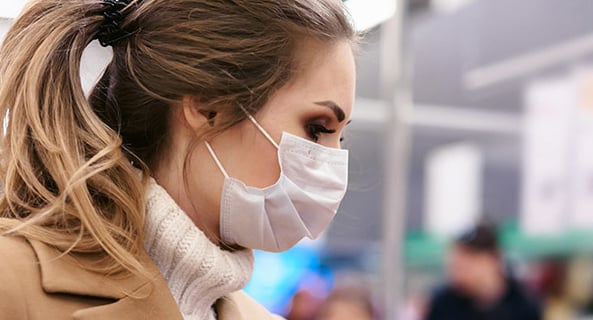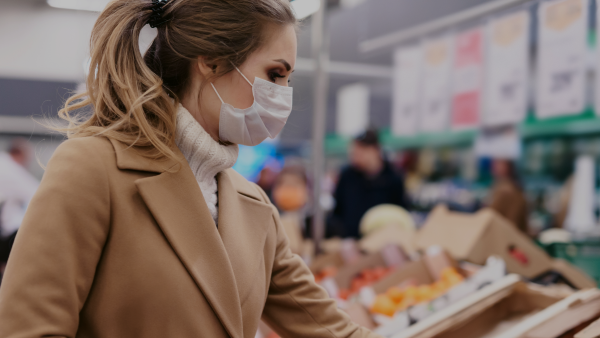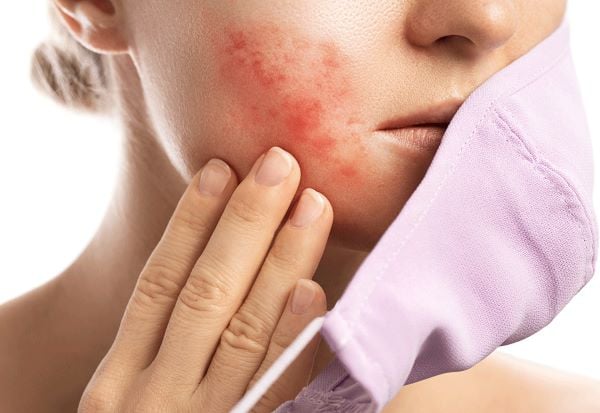Which face mask should I use for air travel?
Face masks are an effective method of protection against COVID-19 when travelling. Alongside practising good personal hygiene and physical distancing, there are a number of steps that can be taken to reduce the transmission of COVID-19 while protecting yourself and others.
Although face mask requirements are constantly changing throughout Australian states and territories, face masks are currently mandated to be worn on board all commercial (domestic and international) aircrafts and in Australian airport terminals in order to limit the spread of COVID-19 before and in-flight. Read on to learn more about which mask is best suited for air travel.
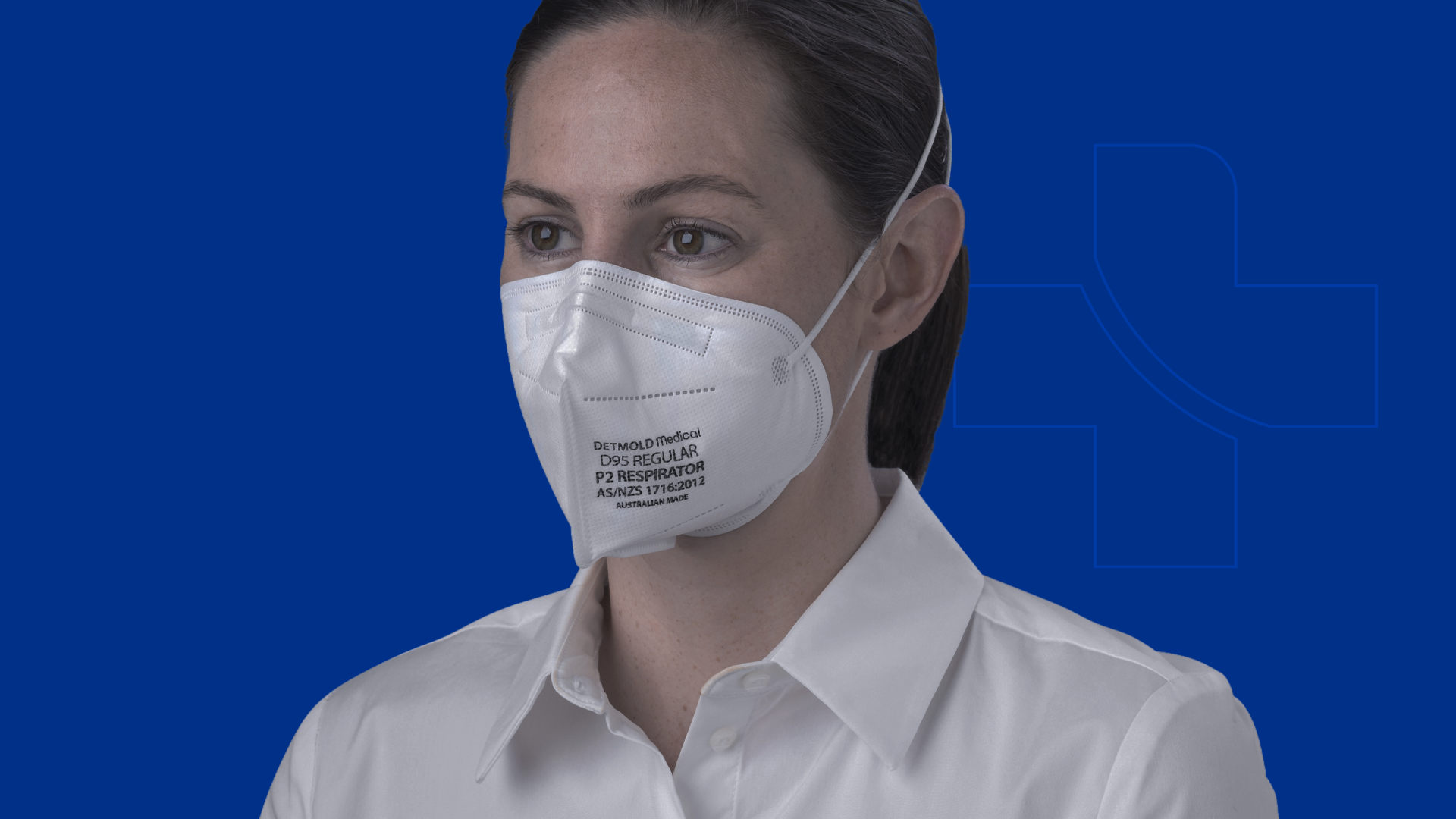
Which Face Mask is Best?
There are a variety of face masks available that offer different levels of protection, whether you’re looking for high-level protection against airborne transmission or just a simple face covering that satisfies mask mandates.
Generally speaking, there are two choices when it comes to face masks - reusable masks and disposable masks.
Reusable masks aren’t classified as medical grade and offer limited evidence for protection against airborne particles. Designed to be reused multiple times, SA Health recommends a minimum of three layers of lightweight, breathable fabric to ensure adequate protection. Reusable masks are ideal for low-risk community settings where it’s not possible to physically distance, however they’re often poorly fitted leaving wearers susceptible to infection. These masks should be washed thoroughly after every use.
Disposable masks are single use. Respirator masks, such as N95 surgical respirator masks or D95 P2 respirators, protect against airborne transmission and are often worn by healthcare workers during aerosol generating procedures or those at high-risk. Medical grade surgical masks offer droplet protection and are ideal for healthcare workers in a lower-risk environment as well as for community use.
How Regularly Should You Change Your Face Mask?
Regardless of whether you’re wearing a disposable or reusable face mask, face masks should be changed after every use or when they become compromised to reduce the risk of self-contamination.
SA Health recommends changing disposable face masks every four hours or as soon they become soiled or damaged. As for cloth masks, they should be changed daily or when they get wet or dirty.
NSW Health suggests that a different cloth mask should be worn for each time of the day and recommends a separate mask for the commute to work, the trip out to buy lunch and on the commute home again.
It’s important to make sure that you remove your mask and store or dispose of it correctly to reduce the risk of transmission. Before putting on and after removing your mask, wash your hands thoroughly with soap and water or use an alcohol-based hand sanitiser (made from over 60% alcohol or 70% isopropanol). If you’re using a respirator mask, follow the donning and doffing guidelines to ensure it’s fitted correctly for best protection. When handling the mask, be sure to hold it by the ear loops and avoid touching the front of the mask.
Single use masks should be disposed of in the bin to avoid contaminating others. Reusable cloth masks should be washed daily or after each use with hot soapy water and left to dry in fresh air or in an air dryer.
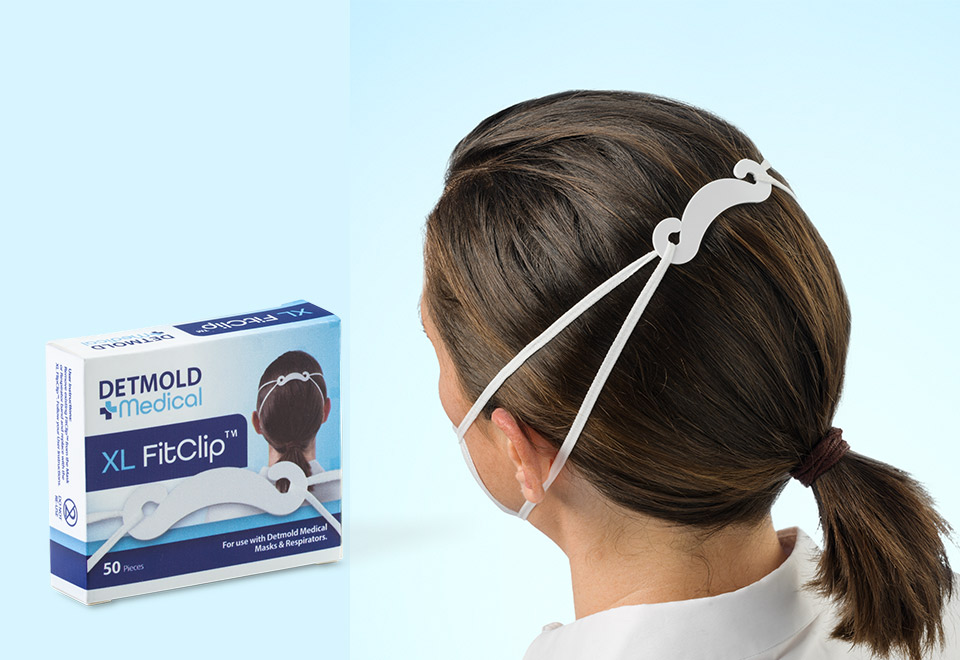
When do you have to wear a mask when traveling?
Mask mandates differ depending on whether you’re travelling by air domestically or internationally, however, masks are required to be worn in all Australian airport terminals.
Domestic Travel
In response to the COVID-19 pandemic, the Australian aviation industry established the Domestic Passenger Journey Protocol to provide clear and consistent guidance for minimisation processes for domestic passenger travel at all airports and on all aircraft. These processes are intended to minimise the transmission of COVID-19 during domestic air travel for both passengers and workers.
All major commercial airlines in Australia that operate domestic flights abide by the mask regulations, including QANTAS, Virgin Australia, Jetstar and Rex.
As part of the Protocol, face masks must be worn in all Australian airport terminals and on all commercial domestic flights. It is recommended that face masks be used in conjunction with other precautionary measures, such as personal hygiene measures and physical distancing if possible.
Face mask mandates are constantly changing and vary across different states and territories. To make sure you’re abiding by local requirements, it’s recommended that travellers review the local state or territory mask requirements prior to travel:
- Queensland
- New South Wales
- Australian Capital Territory
- Victoria
- South Australia
- Western Australia
- Northern Territory
International Travel
Current non-emergency provisions under the Australian Biosecurity Act require travellers to wear a mask while on international flights to Australia. However, Australian outbound travel requirements do not require travellers to wear a face mask on their flight. Each international carrier has their own mask mandates, so be sure to check with your airline to confirm their individual requirements before travelling.
When travelling by air, either domestically or internationally, be sure to travel with enough face masks to safely last the duration of your flight. The Australian Department of Health states that a cloth or surgical mask is acceptable for air travel, however respirator masks like N95 surgical respirator masks or D95 P2 respirators are generally believed to provide greater protection against the transmission of COVID-19.
Detmold Medical is the Southern Hemisphere’s largest manufacturer of high-quality respirators and face masks. Find out more about which mask is best for you here or shop from our extensive range of products.


